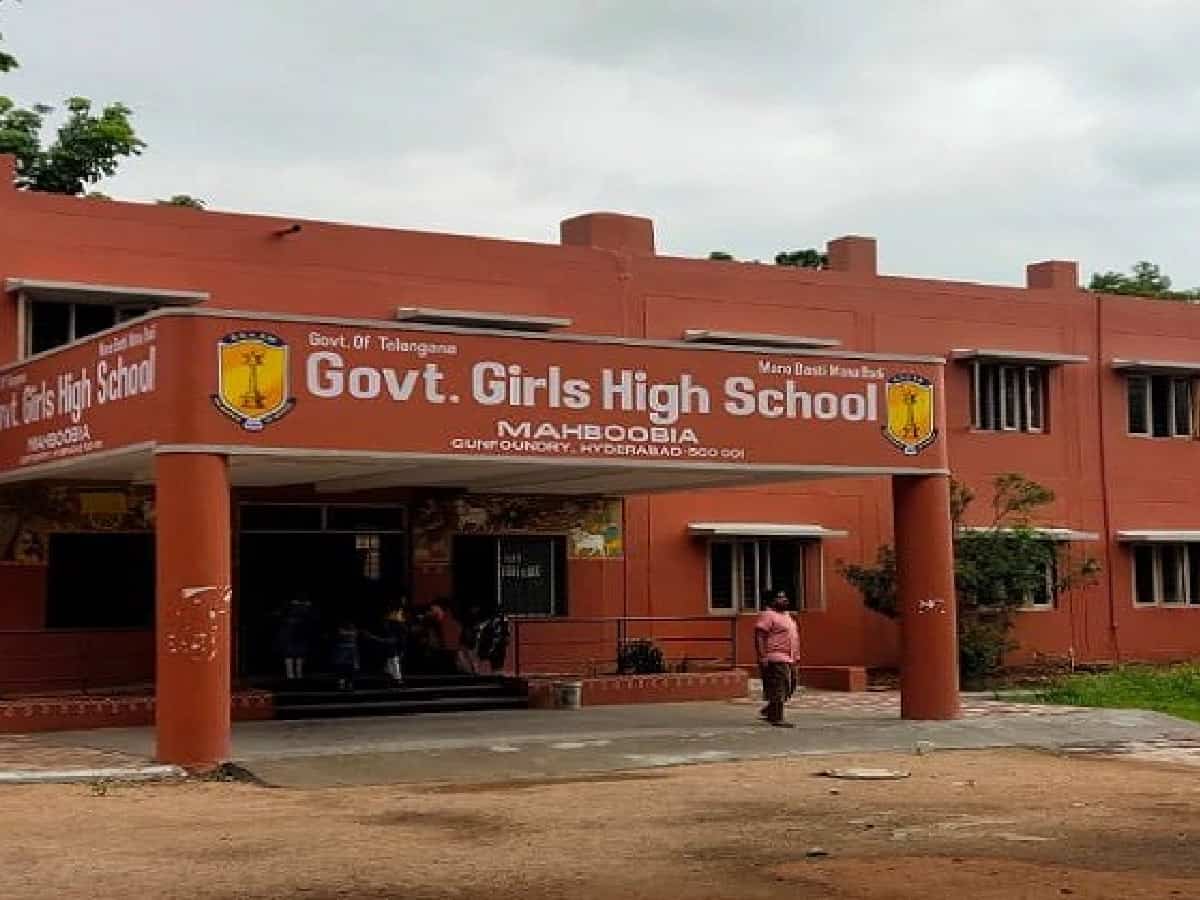
Hyderabad: The much hyped Mana Ooru, Mana Badi (Our village, Our school) scheme announced in February, 2022 by the Telangana State government to upgrade around 26,065 government run schools with an outlay of Rs 7,283 crores has landed in a major controversy.
The opposition parties and some experts group allege that the project is starved of funds and the government is not serious in its commitment towards education. Therefore, nearly 5 months after its announcement it remains a ‘Slow starter’. Despite the academic year beginning on June 16, the government has hardly released funds for the works to gather pace, they alleged.
The Telangana CM had said in early March that the unique scheme would be implemented in three phases. The first phase will take up upgradation of the facilities of around 9,120 schools with an investment of Rs 3497 crore. It was followed by a government order facilitating linking with Central schemes like the Samagra Shiksha Abhiyan, MNREGA, participation by private donors, corporates through their CSR funding etc.
The scheme raised high hopes in the education sector, especially in schools sector which has been badly impacted by the pandemic. Most schools in rural areas are in bad shape, especially in infrastructure and teaching facilities. Many did not have facilities to implement online teaching and most children did not have access to laptops.
The former Chief of the Telangana Pradesh Congress Committee, N Uttam Kumar Reddy (MP) alleged that till date, “The TRS government neither upgraded the infrastructure in schools nor filled up vacancies of teachers. For the new scheme Mana Ooru, Mana Badi, only administrative sanction was accorded through a Government order dated February 3, 2022 but funds have not been released or spent for the upgradation of the schools as the Finance Ministry has not given its sanction.” However, he agreed that under the scheme, some schools were upgraded by using funds received from donors.
Refuting the allegations, R Sridhar Reddy, Chairman of the Telangana State Education & Welfare Infrastructure Development Corporation, which is the nodal agency for the implementation of the programme, said, “Development works were in various stages of progress. Fund shortage is not the issue, but procedure like tenders was taking time. The heavy monsoon rains in July too slowed down the pace”.
He said, Mana Ooru, Mana Badi and Mana Basti, mana Badi (our locality, our school) were totally Telangana government funded programmes. The idea is to develop basic infrastructure. These include upgrading 12 components like providing toilets with running water facilities, drinking water, additional classrooms, dual desk furniture; classroom and compound walls repair, painting etc. The focus was also on improving digital facilities and ICT panels for class 8-10, Sridhar Reddy said.
“We are planning a total transformation of the government and local body run schools. The scheme is not dependent on the Samagra Shiksha funds also. By the end of the year will achieve 80 per cent completion. The project was conceived after a study of what schools require and is being implemented for long term benefit. Funds from donors, CSR, Alumni Associations are welcomed,” he claimed.
“It’s not fund crunch, but lack of intention to implement. Education is not a priority for the TRS government. A CM who can raise huge funds for pet projects like Kaleswaram Irrigation scheme, Rythu Bandhu, Mission Bhagiratha has been neglecting education schemes systematically,” says Akunuri Murali, a former Civil Servant and activist of the Social Democratic Forum (retired civil servants and experts in education).
Referring to the Samagra Shiksha scheme, he said that the TRS government by not providing for the 40% funding required against the 60% provision of the Centre to take advantage, has in the last 8 years clearly demonstrated its neglect towards improving infrastructure facilities in schools.
The scheme also ran into legal hurdles when the High Court restrained the government from going ahead with the procurement process through tenders. Consequently, in July, the government cancelled bids worth Rs 164 crore for procurement of green chalk boards, Rs 195 crore for furniture and Rs 360 crore for dual desks to be procured and supplied to schools. This again led to more delays.
Interestingly, a look at the budgetary allocation for education by the TRS government shows a declining trend in the last several years in percentage terms. The year the TRS came to power (2014-15) it was pegged at 10.89%. Thereafter, the Government consistently reduced it to 9.68% in 2015-16; 8.23% in 2016-17 and down to 6.24% in 2022-23.

